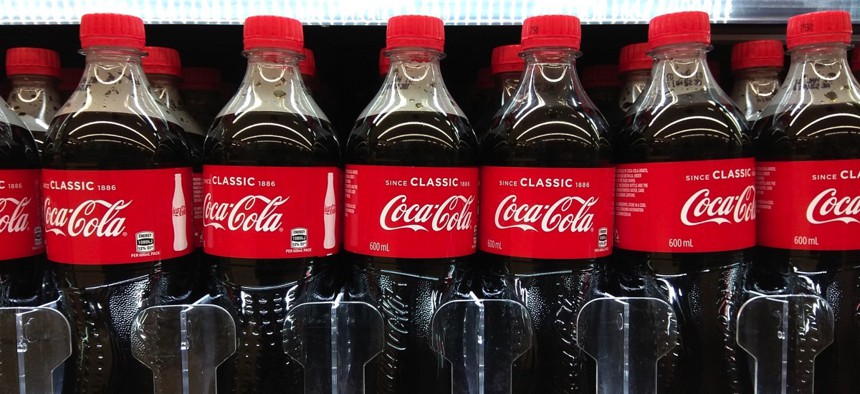A Bitter Legal Fight Over a Philadelphia Soda Tax Could Decide the Future of Sugar Taxes in the US


Connecting state and local government leaders
Legal battles can be expensive to tax payers and time consuming for city and state legal departments. Philadelphia has been at loggerheads with the industry for almost two years, racking up legal fees north of $1.4 million.
In a last-ditch effort to dismantle Philadelphia’s new soda tax, opponents—led by the soda industry—are taking their lawsuit to the highest level of a state’s judiciary.
The Pennsylvania Supreme Court last week (Jan. 30) voted in favor of hearing the case, brought by a collection of distributors, small retailers, and the American Beverage Association, an industry trade group. In agreeing to hear the case, the court turns the battle in Pennsylvania into one of national interest. If the court’s justices wind up deciding the tax is illegal, it may embolden the soda industry to use the court system to challenge similar levies in other states and cities. That, in turn, would likely send a chilling effect to any place thinking of adopting a soda tax. Legal battles can be expensive to tax payers and time consuming for city and state legal departments. Philadelphia has been at loggerheads with the industry for almost two years, racking up legal fees north of $1.4 million.
Passed in June 2016, the Philadelphia tax was a signature piece of legislation by the city’s mayor, Jim Kenney, who hoped to use the money collected on it to fund the city’s universal pre-kindergarten education program. It imposed a one-and-a-half cent per ounce tax on soda distributors, who, in turn, passed the extra cost on to consumers by increasing prices. In 2017, the tax raised close to $79 million in revenue for the city, short of the $92 million the city had estimated.
The industry-backed case argues the tax is illegal because it violates Pennsylvania’s Sterling Act, which prohibits Philadelphia from passing a tax on a transaction or subject that the state already taxes, according to the Philadelphia Business Journal. In other words, distributors argue that because the cost of the tax winds up trickling down to consumers, it’s essentially a second sales tax on an item that is already taxed. Proponents of the tax say it’s not a sales tax because there’s no additional tax on consumers at grocery store cash registers. The industry’s argument has twice been rejected and tossed out by lower courts. If the state’s supreme court follows suit, it will be a major victory for Kenney.
Soda consumption in the US has declined steadily as consumers have sought healthier, less sugary options, often in the form of water and flavored teas.
That decline comes against a backdrop of growing acknowledgement of poor American public health. More than three-quarters of American adults are considered overweight or obese, that latter of which increases the likelihood of heart disease, Type 2 diabetes, stroke, and some cancers, according to the US Centers for Disease Control and Prevention. The agency puts the obesity rate among children at 17%.
Public health experts have in part blamed the obesity epidemic on poor nutrition, including an overconsumption of sugary foods and drinks. In response, cities around the country in recent years have successfully passed soda taxes: In California, measures were passed in Berkeley, San Francisco, Albany, and Oakland. Boulder, Colorado and Seattle, Washington also adopted soda taxes. And in Portland, Oregon, a public health advocacy group is seeking to get it on a city ballot in May 2018.
The soda industry did have one noteworthy success in 2017, as 58% voters in Santa Fe, New Mexico voted against implementing a levy on sugary drinks. In each place, the industry’s argument has been largely the same: that it targets small-business owners and low-income families.
Chase Purdy is a business reporter for Quartz, where this article was originally published.

NEXT STORY: Digital policing requires extensive collaboration




